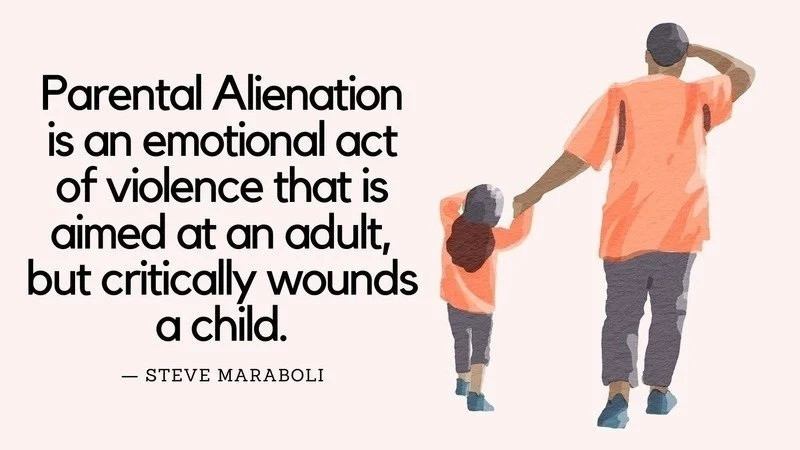

Parental Alienation: Understanding Potential Signs and the Need for Professional Help
Parental alienation refers to a dynamic where one parent actively manipulates a child to undermine their relationship with the other parent. This harmful behavior can have devastating emotional consequences for the child. While complex to identify, this blog post explores some potential red flags, emphasizing the importance of seeking professional help.
Important Notes:
- These signs don't automatically indicate parental alienation. Other factors might contribute.
- The intensity of these behaviors and their impact on the child are crucial to consider.
Potential Signs of Parental Alienation
Child's Behaviors
- Unjustified Rejection: The child displays extreme negativity, even hatred, towards the targeted parent without a valid reason.
- Weak or Frivolous Criticisms: The child's justifications for their disdain seem contrived, exaggerated, or borrowed from the alienating parent.
- "Independent Thinker" Phenomenon: The child insists their negative views are solely their own, despite echoing the alienating parent's sentiments.
- Lack of Ambivalence: The child expresses no positive feelings or memories regarding the targeted parent, seeing them in black-and-white terms.
- Absence of Guilt over Cruelty: The child shows no remorse or empathy for the emotional pain they cause the targeted parent.
- Reflexive Support of Alienating Parent: The child automatically sides with the alienating parent in any conflict.
- Spreading the Campaign: The child extends their animosity towards the targeted parent's extended family or friends.
Alienating Parent's Behaviors
- Badmouthing the Targeted Parent: Constant denigration of the other parent in the child's presence.
- Limiting Contact: Interfering with visitation schedules, phone calls, or other communication.
- Withholding Medical, Academic, and Other Important Information: Excluding the targeted parent from important aspects of the child's life.
- Fostering Dependency: Discouraging the child's independence, portraying the targeted parent as unsafe or unreliable.
- Forcing the Child to Choose: Presenting ultimatums or demanding the child reject the targeted parent.
- Sharing Inappropriate Information: Oversharing adult relationship problems or court details with the child.
- Erasing the Targeted Parent: Removing photos, gifts, or mementos related to the targeted parent.
- Creating the Illusion of 'Us vs. Them': Promoting the idea of shared victimhood with the child, further alienating the targeted parent.
- Subtle Undermining: Using nonverbal cues like eye rolls or sighs to discredit the targeted parent.
Impact on the Child
- Emotional distress (anxiety, depression, low self-esteem)
- Damaged relationships with both parents
- Difficulty forming healthy attachments later in life
Seeking Professional Help
If you suspect parental alienation, getting professional support is crucial:
- Therapists specializing in parental alienation: Can help the child process emotions and provide coping strategies.
- Mental health professionals: May evaluate the situation and provide expert testimony for legal proceedings.
- Legal Representation: Attorneys familiar with parental alienation can advise on custody arrangements and protecting the child.
References
- Parental Alienation Awareness Organization (PAAO)
- Psychology Today - Parental Alienation
- The Leadership Council on Child Abuse & Interpersonal Violence
Remember: Parental alienation is a serious issue. If you have concerns, prioritize the child's well-being and seek professional guidance.
Popular articles

Apr 11, 2024 07:40 PM

May 25, 2024 08:09 PM

Apr 11, 2024 07:22 PM

Apr 10, 2024 07:59 PM

Mar 14, 2024 07:53 PM
Comments (0)